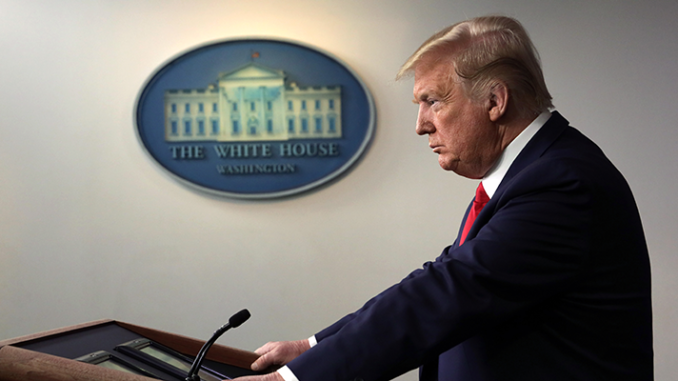
With Saturday’s vote in the Senate acquitting President Trump on the charge of “inciting” the mob who stormed the U.S. Capitol while Electoral College votes were being counted, many may be asking whether the era of impeachment is over (at least for now). Others may be asking whether impeachment as a political weapon is only just being awoken.
It certainly feels as though impeachment has eaten up America’s time, attention, and energy over the past weeks. Add to this the Democrats’ effort to try to convict President Trump on “election interference” related impeachment charges the first time around, and the time spent on the topic has reached into months, if not years.
What can be shown for all of this? If anything, the Democrats’ insistence on impeaching Trump twice in the House, but failing to convict him either time in the Senate, has only raised the specter of impeachment as a political weapon (which it’s not supposed to be).
As John Hinderaker observes at Powerline Blog, “[n]ow that impeachment is just one more card in the political deck, to be played by whichever party controls the House of Representatives, the question naturally arises: what should Republicans do when they retake control of the House, very likely in 2022?”
Some are already hinting at what route Republicans might take. Senator Lindsay Graham (R-S.C.) recently pointed out that according to Democrats’ own instance on impeachment being used in response to support for violence, “I don’t know how Kamala Harris doesn’t get impeached if the Republicans take over the House, because she actually bailed out rioters.”
Senator Tom Cotton (R-Ark.) echoed this line of thinking in his own comments. Or, as Hinderaker notes, Republicans could try to impeach former President Obama or President Biden for their unconstitutional actions with regard to not enforcing immigration law.
But should this be the route we take? It’s certainly understandable, when so much of the opposition against Trump is due to politics, not the Constitution or the law. Republicans can naturally be expected to wield impeachment as a political weapon once it’s been used against them in this fashion.
However, this is not necessarily the role impeachment should have under our Constitution. While, with its proceedings being conducted in the House and Senate, impeachment is inevitably an endeavor infused with politics, it is also supposed to adhere to constitutional standards. Senator Minority Leader Mitch McConnell (R-Ky.) highlighted this fact in his remarks following the vote on Saturday. Noting that the Senate does not have constitutional jurisdiction to convict a former president on an impeachment charge, he stated:
“[O]ur system of government gave the Senate a specific task. The Constitution gives us a particular role. This body is not invited to act as the nation’s overarching moral tribunal. We are not free to work backward from whether the accused party might personally deserve some kind of punishment. The Senate was right not to grab power the Constitution does not give us.”
Ken Blackwell reiterated this point on Washington Watch this past Friday, noting that “the Constitution carefully sets out the extremely narrow and limited role in our democrat republic for impeachment . . . it is a serious matter for anyone other than the voters to remove a public official.” And because Trump is already out of office, “so there is no constitutional basis for [the] proceeding” now underway.
At the end of the day, this saga reminds us of the importance of both the citizens and our leaders standing firm on truth while at the same time in humility seeking wisdom and guidance from God. Whether or not America recognizes our need, the welfare of our nation depends on it.

